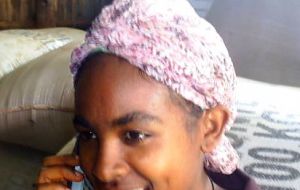MercoPress. South Atlantic News Agency
Cuba lifts cellphone restrictions; next month DVDs
 Cuba has one of the lowest rates of mobile phone use in the region
Cuba has one of the lowest rates of mobile phone use in the region Cubans have been allowed unrestricted access to mobile phones for the first time in the latest reform announced under new President Raul Castro. In a statement in official newspaper Granma, state telecom monopoly ETECSA said it would offer mobile services to the public in the next few days.
Some Cubans already own mobile phones, but they have had to acquire them via a third party, often foreigners. Cuba's rate of cell phone usage remains among the lowest in Latin America. Now Cubans will be able to subscribe to pre-paid mobile services under their own names, instead of going through foreigners or in some cases their work places. However, the new service must be paid for in foreign currency and in advance, which will restrict access to wealthier Cubans. In a release in the official newspaper Gramma, ETECSA (which is 27% owned by Italy's Telecom) said the revenues will be used to fund telecommunications development and the connectivity revolution in Cuba. Two weeks ago, a ban on a wide range of consumer electrical appliances was lifted, after Raul Castro said in his inaugural speech as president that he would act to ease some of the restrictions on Cubans' daily lives. But tight restrictions remain in place on internet access in homes and on foreign travel. When Raul Castro, 76, was selected as president in February, after the retirement of his ailing older brother, Fidel, he promised to lift the excess of prohibitions and regulations that rule daily lives of Cubans. A couple of weeks ago the government also announced that Cubans will be able to buy computers and DVD players next month for the first time, if they have the hard currency to pay for them. Just two years ago, banned DVD players were being confiscated by airport customs officials on arrival in Cuba. Last week the Raul administration lifted its ban on farmers buying their own supplies in an attempt to improve agricultural production. All supplies had been previously been assigned by the central government, but small-scale farmers on some parts of the island are now permitted to buy such items as seeds, fertilizer and clothing equipment from state stores. Days after Raul Castro was sworn in as president, Cuba signed two legally-binding human rights agreements, forming part of the Universal Declaration of Human Rights, at the UN in New York. He has also held talks with the Vatican's leading diplomat, Cardinal Tarcisio Bertone, who is seen as a potential emissary between the US and Cuba.




Top Comments
Disclaimer & comment rulesCommenting for this story is now closed.
If you have a Facebook account, become a fan and comment on our Facebook Page!